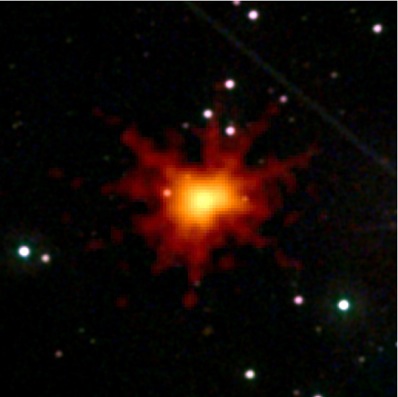We're open daily! View holiday hours
Science News
Blinded by the Light
July 29, 2010

On June 21st, an unexpectedly powerful blast of x-rays blinded NASA’s orbiting x-ray observatory, Swift. The satellite briefly shut down, overwhelmed by the amount of data it detected! Swift’s software initially took the blast to be anomalous and ignored it – as if the satellite couldn’t believe what it was seeing.
Upon further examination, astronomers realized that Swift had witnessed its brightest x-ray source since beginning operations in 2005 – a sudden flood of radiation that measured 5 times larger than the brightest burst previously observed and 14 times brighter than the brightest-known continuous source of x-rays in the sky. According to Phil Evans, PhD, who authored parts of Swift’s software, “It was like trying to use a rain gauge and a bucket to measure the flow rate of a tsunami.”
The source, dubbed GRB 100621A, was a gamma ray burst, a sudden eruption of the highest-energy form of radiation known, followed by longer-lasting “afterglows” of x-rays and other forms of energy. Originally discovered in 1967 by military satellites designed to detect secret nuclear weapons tests, gamma ray bursts originate in far outside the Milky Way Galaxy and are believed to occur as massive stars collapse to form black holes.
How much energy does such an event release? Well, June’s record-breaking burst occurred nearly halfway across the observable universe!
Currently, astronomers detect gamma ray bursts roughly twice per day somewhere in the sky. Within a galaxy the size of the Milky Way, astronomers estimate that one gamma ray burst may occur about every 100,000 to 1,000,000 years. Studies suggest that if one took place close enough to Earth – within, say, 3,000 light years – its radiation could have catastrophic effects on the planet’s biosphere. No evidence suggests that this has happened in the past, but who knows what the future holds? Of course, we have (smaller, but) bigger things to worry about closer to home…
Image: NASA/Swift/Stefan Immler